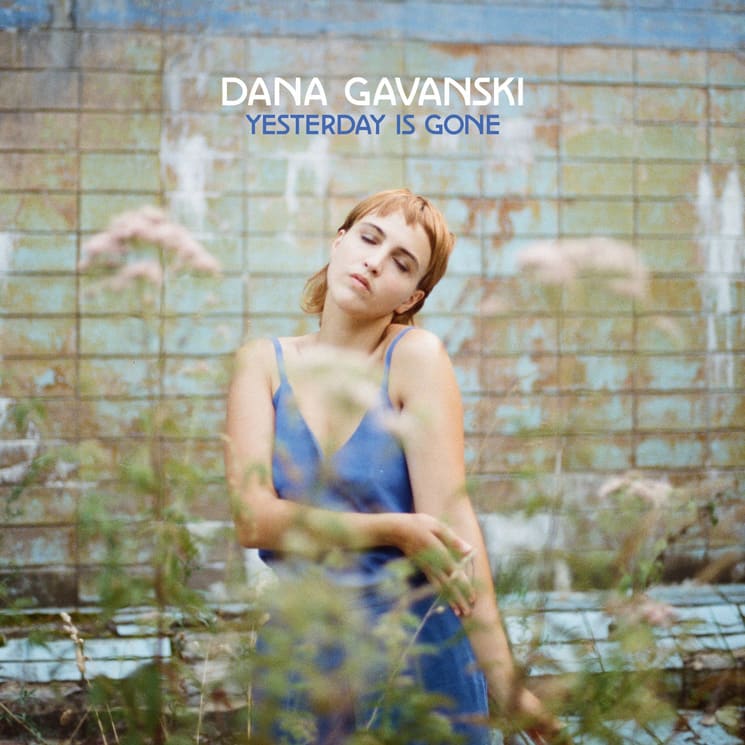Dana Gavanski's Yesterday Is Gone is finally here. Named one of Exclaim!'s Emerging Canadian Artists You Should Hear, the record brings all the buried treasures of spring in delicate vocals and plucked guitar melodies — interspersed with instrumental deviations.
Gavanski moves between clean folk melodies and more jangly psych-washed tracks. Exploring ideas of longing, rootlessness and honesty, Yesterday Is Gone shines as it dips, an anchor during a time of transition. This tethered spaciousness makes sense for Gavanski; the Serbian-Canadian artist moved from Vancouver to Montreal and now finds herself in Toronto — though many of the artistic impulses behind the album stem from her time writing during a Banff residency.
Experimentations in sincerity are matched by the movements into stimulating instrumental choices. A clarinet makes an appearance on "What We Had," and a heavier psychedelic fusion compels through "Everything That Bleeds." The latter features a haze of electric guitar — a technique used for even more noisy impact on the buzzy track "Trouble."
Album gem "Good Instead of Bad" dives deep into candid exploration of self, simmering tenderly with the questions, "How can I be good instead of bad?" and "How can I be true instead of sad?" The mood here is off-kilter: bittersweet but full of resolution. Gavanski seems content to wonder and let herself grow, and her music reflects this comfortable transience.
(Flemish Eye Records)Gavanski moves between clean folk melodies and more jangly psych-washed tracks. Exploring ideas of longing, rootlessness and honesty, Yesterday Is Gone shines as it dips, an anchor during a time of transition. This tethered spaciousness makes sense for Gavanski; the Serbian-Canadian artist moved from Vancouver to Montreal and now finds herself in Toronto — though many of the artistic impulses behind the album stem from her time writing during a Banff residency.
Experimentations in sincerity are matched by the movements into stimulating instrumental choices. A clarinet makes an appearance on "What We Had," and a heavier psychedelic fusion compels through "Everything That Bleeds." The latter features a haze of electric guitar — a technique used for even more noisy impact on the buzzy track "Trouble."
Album gem "Good Instead of Bad" dives deep into candid exploration of self, simmering tenderly with the questions, "How can I be good instead of bad?" and "How can I be true instead of sad?" The mood here is off-kilter: bittersweet but full of resolution. Gavanski seems content to wonder and let herself grow, and her music reflects this comfortable transience.
